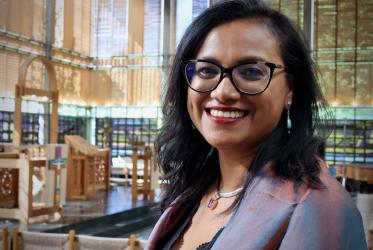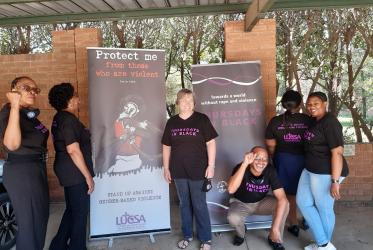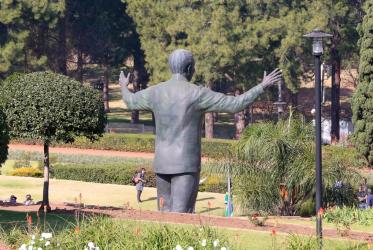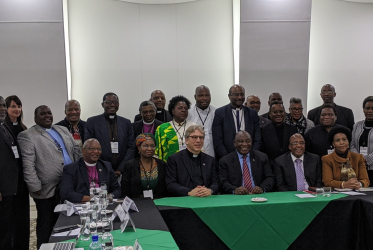Displaying 1 - 20 of 30
South Africans draw hope despite recurring challenges
16 December 2019
ÖRK-Delegation trifft sich mit Südafrikas Präsident Ramaphosa
09 December 2019
WCC delegation meets with South African President Ramaphosa
09 December 2019
La délégation du COE rencontre le président sud-africain Ramaphosa
09 December 2019
Churches in southern Africa stand against violence, xenophobia
10 October 2019
Wenn du eine Frau schlägst, schlägst du einen Felsen
18 September 2019
When you strike the women, you strike a rock
18 September 2019
Cuando golpeas a las mujeres, golpeas una roca
18 September 2019
Frapper une femme, c’est comme frapper un rocher
18 September 2019
Donnerstags in Schwarz: sich gegenseitig helfen, Leben verändern
21 February 2019
Thursdays in Black: sharing support, transforming lives
21 February 2019








